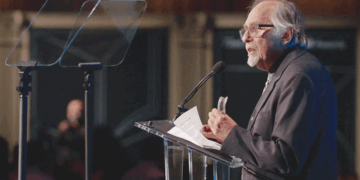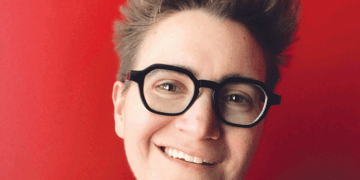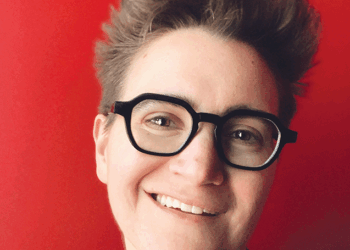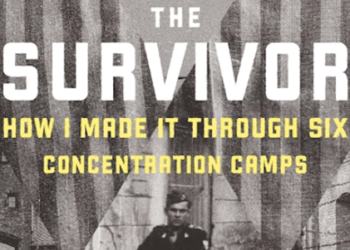Keeping Faith in Rabbis: A Community Conversation on Rabbinical Education, by Rabbi Hayim Herring and Ellie Roscher, Avenida, 249 pages, $17.95
Reviewed by NEAL GENDLER
Despite “wonderful” studies in seminary, says Rabbi Ellen Flax, “The sad truth is that my five years of rabbinical school did little to prepare me for what was to become the day-to-day work of my rabbinate.”
That sentiment appears in various strengths among writers in Keeping Faith in Rabbis, a book of essays on education by rabbis, academics and congregants of various professions, edited by Rabbi Hayim Herring and Ellie Roscher; she previously edited Keeping the Faith in Seminary, about Protestant education.
Herring calls the contributions a form of conversation among rabbis, lay leaders and others. Most make interesting, instructive, sometimes witty reading for those of us who’d like a better understanding of our rabbis and how they, and congregations, better can work together.

Herring, former rabbi of Beth El Synagogue, the large Conservative congregation in St. Louis Park, has a variety of leadership experiences, having also been a senior federation professional and a national foundation director — all in three decades while living in one zip code.
Recent data show that only about 25 percent of American Jews say religion is important in their lives, and the same proportion attend services once or twice a month — less than half the rate of the rest of the population. Herring asks: “How do we make sense of the reality that the people who brought a belief system of ethical monotheism to the ancient world now perceive that the Jewish religion lacks meaning for them in contemporary America?”
A beginning is to examine the preparation of their rabbis, and 32 contributors from across the denominations tell of their experiences, observations and ideas for improvement.
An excellent piece by Minneapolis attorney Richard Kelber addresses the problem of Jews’ disinterest, saying rabbis must be prepared to teach congregants the importance of Jewish civilization and practice.
A common theme is that traditional seminary and yeshiva training in Hebrew, Torah, Talmud, texts and Jewish law doesn’t address managerial and relationship demands of leading a congregation, although seminaries increasingly are adding such instruction.
Congregations usually want a rabbi to be expert in Jewish history, ritual, law and education, plus counseling and management. But being human, many aren’t equally adept in all areas.
Connected with that are matters of personality — rabbi as extrovert or introvert — and of form versus content, both being necessary for success. One contributor recalls being taught about the “2 percenters,” a shifting portion of congregants who will be unhappy no matter what the rabbi does, doesn’t do or doesn’t do well.
What comes through strongly is that rabbis often are lonely — not uncommon among those whose role is to decide — may have trouble balancing authority and social involvement, and the great need for mentors at the start of a career and strong peer friendships throughout.
Several writers propose that rabbinic education use the medical-school model: Graduation in four years instead of five or six — followed by two years of mentorship. Robert Karasov, a Minneapolis pediatrician, mohel and congregational president, points out that physicians receive a similar four-year basic education, then work as residents in specialties. So, too, could new rabbi-residents explore interests and develop experience in different areas, such as congregational leadership, education or social service.
Another contributor suggests a sort of group practice, in which rabbis and lesser-trained Jewish professionals provide different services.
And in a delightful piece, Rabbi Rami Shapiro (www.rabbirami.com) defines two kinds of rabbis: clerks and prophets.
“Clerks comfort; prophets discomfort. Clerks legitimize, prophets challenge,” Shapiro says. “The Jewish establishment values clerks, and is willing to pay them well,” but “nobody wants prophets and everyone wants the status quo” — involved Jews “because the status quo is comforting,” and uninvolved Jews “because the status quo provides them with excuses for not being involved.”
Rabbis today, he says, are trained to be clerks.
“Clerks make nice; prophets make waves. Clerks warm hearts; prophets set them ablaze. All rabbis need to know how to be competent clerks. The great rabbis learn to be prophets as well.”
***
Neal Gendler is a Minneapolis writer and editor.
A book launch will take place 7:30 p.m. Tuesday, Dec. 2 at Bet Shalom Congregation, 13613 Orchard Rd., Minnetonka.
(American Jewish World, 11.21.14)



















